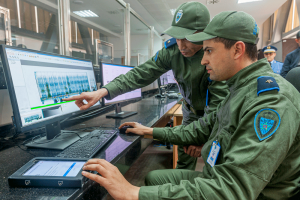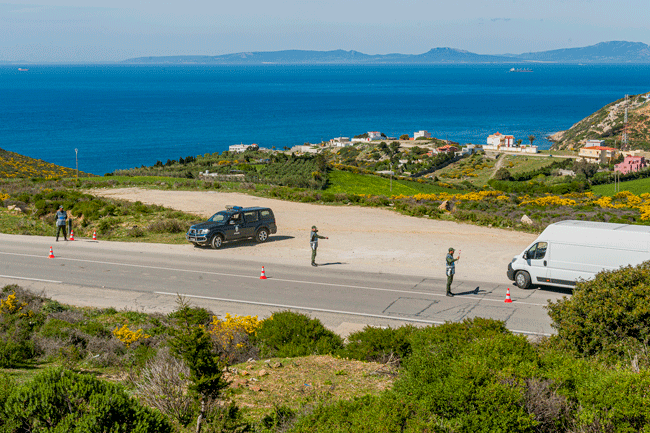Morocco’s Customs Service establishes special status for its officials
15 June 2023
By the Moroccan Customs ServiceThe date of 10 December 2020 marked the history of the Moroccan Customs Service. On that date, Morocco’s Governing Council approved the draft Decree governing Customs staff regulations. This article reviews the significant provisions of the Decree and the important changes it introduces.
The Customs and Excise Administration of the Kingdom of Morocco (ADII) is overseen by the Ministry of the Economy and Finance. This Ministry is responsible for controlling the international movement of goods and persons for the purposes of collecting duties and taxes, combatting fraud and illegal trade and ensuring security. By continually modernizing and adapting its procedures to the needs of commercial operators, it also contributes to the establishment of an attractive environment and plays a major role in the country’s economic development.
To achieve its various missions, the Administration focuses on improving its human capital by enabling staff to develop their professionalism and skills. In December 2022, it also amended its staff regulations and introduced a regulatory framework that reflects those missions, empowers its officials, provides them with a clear framework for their actions and protects them.
Prior to the reform
Customs staff regulations may differ from country to country and may be military, paramilitary or even civil in form. In Morocco, the Customs Service is divided into two main categories of officer: Customs unit officers and Customs office clerks. It is a paramilitary force, which means that all personnel are entitled to carry a service weapon. Until quite recently, however, the Customs Administration was governed by a variety of statutory provisions which applied to civilian personnel, particularly the General Civil Service Statute and interministerial statutes, thus obscuring the special and specific nature of its security mission with all the ensuing constraints: special working hours, night work, military training and discipline, uniforms, the carrying of arms, etc.
This had negative consequences in terms of managing the Customs body, particularly in relation to inappropriate recruitment criteria, career structure and conduct. To be recruited as surveillance officers, for example, within a unit, applicants had to be between 18 and 45 years of age, while physical and mental aptitudes were not specified. In terms of conduct, previously there were two disciplinary systems, one for Customs unit officers and the other for Customs office clerks. In addition, the rules applying to unit officers differed according to whether they were commissioned officers or non-commissioned officers, with any non-commissioned staff being denied certain guarantees of defence that officers benefitted from. The respective sanctions were applied to them without the need for a hearing before a disciplinary panel, which, because it was evenly constituted (representatives of the Administration and representatives of personnel) was in a position to safeguard the right to defence. The procedure provided only for a request for clarification to be submitted to the officer concerned. With respect to the career status, the previous regulations made no provision for recognition for officers who died in the performance of their duties in connection with missions to combat smuggling and other illicit trafficking.
Completion of work to be carried out
The new legal arrangements were published in Official Journal No. 6948 of 31 December 2020. This may rightly be regarded as the outcome of one of the most important strategic projects undertaken by the ADII. Sponsored by the Director General of Customs, it was also supported by the Minister for the Economy and Finance, who was convinced of its importance. The new Staff Regulations arose out of the work of the HR team, which drew them up in full prior to their submission to an internal and external consultation procedure involving, in particular, the Ministry for the Modernization of the Public Administration, the Ministry of Finance and the Government General Secretariat.
In the planning stage, the team sought to adapt the rules of the Staff Regulations to the realities and needs of improved human resource management on equitable bases which were adapted to the particular missions of a paramilitary administration such as the ADII. A comparative assessment was carried out with a view to building on the good practices of other bodies and other Customs administrations.
If committing to such a project was already a challenge in itself, it was then necessary to ensure that the measures were applied and to update all our management systems. The third challenge was to ensure the engagement of existing staff.

New provisions
A new unified legal and regulatory framework applicable to all Customs officials was created, with the following major features:
- The rules as a whole that form the basis of military discipline: hierarchical relationship, penalties, prohibition of the consumption of certain products, etc. The new statute established a single unified disciplinary system providing the same guarantees for all personnel, while establishing a dynamic link between the system of conduct and the reward scheme, thus allowing penalties to be written off in the event of receiving an award.
- A new code of good conduct: introduced by the Minister for the Economy and Finance, this corrects shortcomings in the area of sexual harassment, abusive use of social networks to disseminate confidential information, misuse of the image of officers or of the Administration, etc.
- The rules relating to the bearing of arms and wearing of the uniform.
- Provisions relating to work outside normal working hours.
- New recruitment criteria: this involves, in particular, defining the physical and age requirements for joining the Administration. Surveillance officers for example must be between 18 and 25 years of age and must have a certain visual acuity, height and physical condition.
- New conditions for promotion: the new Staff Regulations maintain the existing conditions but add the possibility of promotion following successful completion of the Administration’s professional aptitude tests. A grading system has also been introduced among certain categories of officials (technicians, editors, technical assistants) who had special interministerial status. The posts of Inspector General of Customs, Controller General of Customs, General Engineer and Architect General of Customs have also been created.
- The award of 18 months’ seniority or exceptional promotion for officers who have carried out outstanding operations or who have suffered serious injuries in the course of their duties, and the award of the same seniority to officers who have been killed on duty, to the benefit of their heirs.
- The adoption of a new promotion scale for certain categories of officers who cannot go beyond remuneration scale 8, such as technicians and editors.
- The adoption, for the first time, of moral reward, i.e. “encouragement, honourable mention and witness of satisfaction”; such rewards may strike off certain disciplinary penalties.

Sense of belonging and project ownership
This special status of ADII personnel also seeks to strengthen the sense of belonging of officers to the Moroccan Customs family, whether they are unit officers or Customs office clerks. After publishing the new regulations, the Administration launched a wide-ranging information and communication campaign aimed at all central and regional personnel, and involving presentations and open days. The objective was not only to inform officers but, in particular, to celebrate their success and share the feeling of pride in finally being covered by special staff regulations that govern Customs officers. While inclusion in the new regulations was not obligatory but conditional upon filing an express request, personnel as a whole have been eager to prepare their applications well before the expiry of the one-year deadline that has been laid down.
More information
S.ALILA@douane.gov.ma

